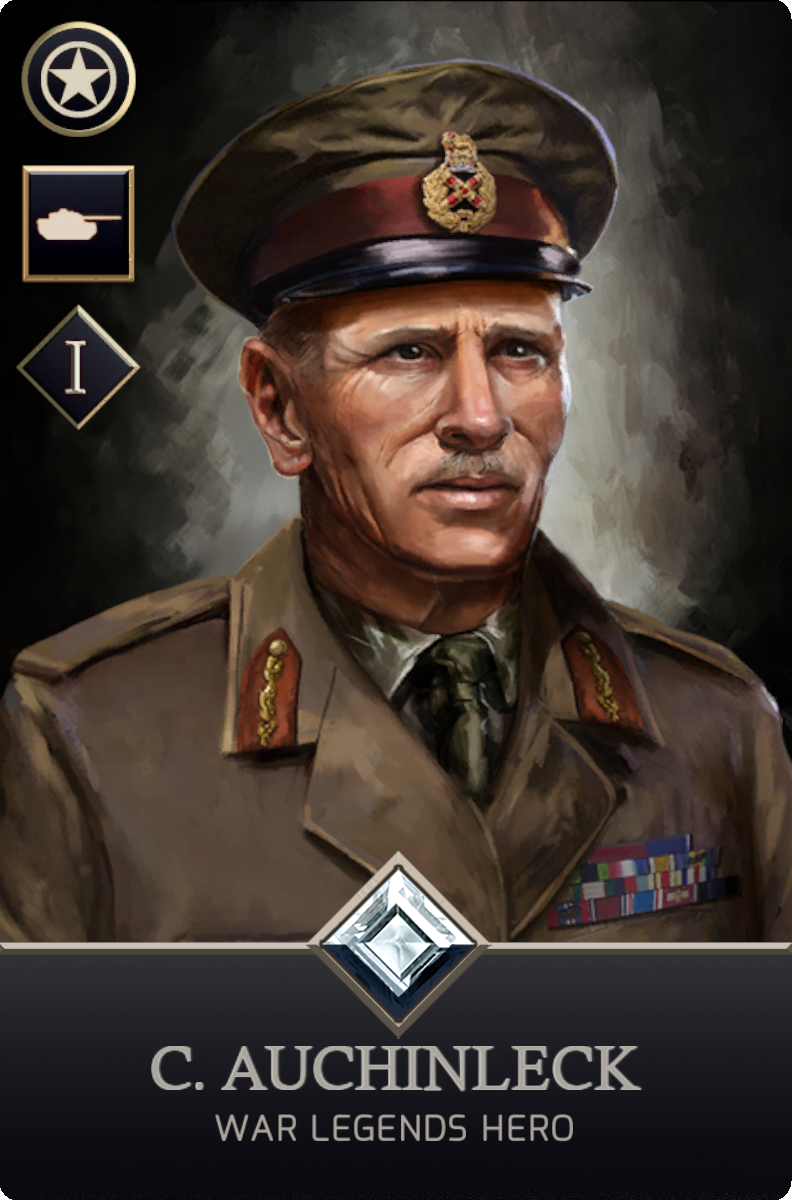


Hero Background
Claude Auchinleck was born on 21 June 1894 in the town of Aldershot in Hampshire (UK). He studied at Eagle House School and Wellington College and joined the Indian Army as a second lieutenant in 1903 in the 62nd Punjabi Regiment.
Auchinleck soon showed an interest in Punjabi culture, which led him to learn the native dialects as well as the Punjabi language, which he spoke fluently, earning him the respect of his subordinates, and he was promoted to lieutenant in 1905 and to captain seven years later.
During World War II in 1940, Auchinleck was given command of the Allied forces to defend Norway, but the country was conquered by the Nazis and the operation was a failure, after which Claude returned to India as commander of the Indian Army.
On 10 December the British managed to break the siege of Tobruk after several unsuccessful attempts. Thanks to the concentration and organization of troops and resources in North Africa, the square was liberated and the British continued on to the city of Benghazi, which they took fourteen days later.
After Rommel's return, the British situation changed drastically for the worse, as they were forced to retreat to the west of Tobruk, where they remained for four months in apparent calm.
Auchinleck managed to hold positions despite the proximity of the Afrika Korps to the city of El Alamein. Because the island of Malta was conquered by the Allies, they were able to launch attacks against Axis convoys in North Africa, which, due to the naval blockade, paralyzed logistics and thus prevented the refueling of weapons and other war supplies.
On his return to India in 1942 Claude joined the reserves, despite Churchill's offer to lead the newly created military unit destined for Persia and Iraq, and in 1943 he was appointed commander of the Indian Army for the second time until the end of the war when he was promoted to Field Marshal 1946.
On his retirement he went to live in Marrakech where he lived an austere life until his death in 1981.








